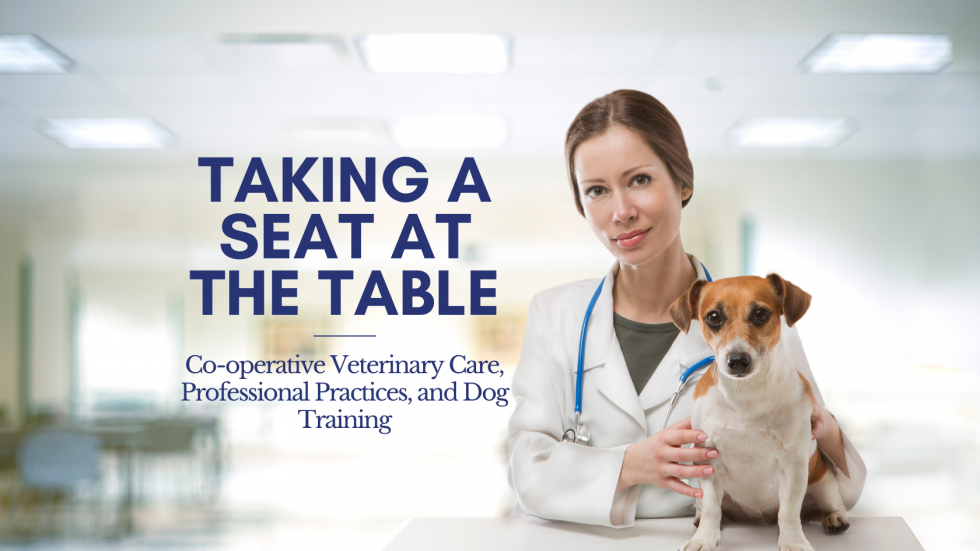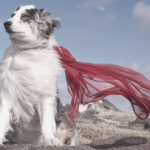Recently, I started using the term care team with those clients who have dogs fearful enough to be referred to a veterinarian or veterinary behaviourist. These dogs often need an integrated approach: the veterinarian takes medical history from the client and tackles the discussion of behavioural medication or supplements, and, if appropriate, other medical rule-outs. During my own sessions with the client, we decide upon the management and training needed to help the dog live a more joyful and less stressed life. The owner, the vet and myself are all members of the dog’s care team. We work together with a single goal: helping the dog. Although some dogs can improve with only a few pieces of the care team puzzle in place, many dogs do much better with a co-ordinated and well-communicated approach. The need for a collegial and co-operative approach is particularly the case when the dog in question is fearful of veterinary procedures and handling, since their very access to some members of their care team is affected by the reason they need care in the first place: fear.
Unlike veterinarians, who must use evidence-based and vetted protocols, dog trainers work in a world without standard operating procedures or even ethical conventions of care. Dog trainers who take on those cases where the dog is fearful or aggressive at the vet need a plan (or multiple plans) to change the dog’s emotional state and behaviour. For example, these dogs might need help to even cross the threshold at the vet’s office, or they might need to wear a muzzle, stand for vaccinations or medications, remain still to have their ears examined, feel comfortable around the veterinarians themselves, and so on. With each client, it is common for the dog trainer to have to draft new training plans to meet the dog’s needs. Although competence at drafting new training plans is a basic skill for dog trainers, it is time-consuming and creates a new study-of-one in each case.
That is, dog trainers taking vet fear cases have had to draft new plans…until now.
The Academy for Dog Trainers has always supported welfare-forward training that relies on well-vetted dog training plans. Dog training plans allow trainers to work quickly and efficiently to obtain desired behavioural and emotional outcomes, especially when paired with decision-making trees about when to increase criteria (make the training harder). Several years ago, The Academy decided that co-operative veterinary care deserved the same attention to detail that standard basic obedience behaviours got: training plans vetted on many dogs, tested by many trainers. The Academy’s Husbandry Project was born.
To start, The Academy worked with veterinarians to identify which common procedures were carried out on unsedated dogs, and to identify common fears that would respond well to training. A list of needed plans was developed, and then the plans themselves were drafted. The plans were of two main classes: operant conditioning, to create useful stationing behaviours and allow dogs to gain comfort with veterinary handling, and classical conditioning, to create positive conditioned emotional responses to veterinary offices, staff, and items. The goal was to condition dogs to be comfortable with the veterinary experience, whether the dog was neutral or fearful.
To test the plans, The Academy asked for volunteers among our community of graduates and students, who used their own dogs. Over several months, this preliminary round of testing was completed. The plans and plan list were then both revised based on the data collected by these volunteers, and another round of testing was completed with volunteers from the public. These volunteers also graciously provided data about their training experiences, and once this second round of data was crunched, the final Husbandry Project plans were created.
Over the coming weeks, the Academy will release these plans to the public at no cost. We have decided to offer the plans publicly during the COVID19 pandemic to promote great training, contribute to the possibility of more joyful and comfortable dogs at the veterinary office, and to enrich the lives of our followers, both human and canine. The plans have been vetted on scads of dogs of a wide range of breed, age, and training background, and by trainers of a wide range of background and skill. The plans come with two ‘How To Train’ documents, and an instructional video, and are free for you to use with your own dogs and your client’s dogs, with proper accreditation of The Academy for Dog Trainers.
Evidence-based and well-vetted co-operative care dog training protocols allow dog professionals to take a seat at the table with veterinary professionals in following standard operating procedures. As full members of any dog’s care team, we can offer the same commitment to efficient, quality care. Dogs, of course, deserve nothing less.












